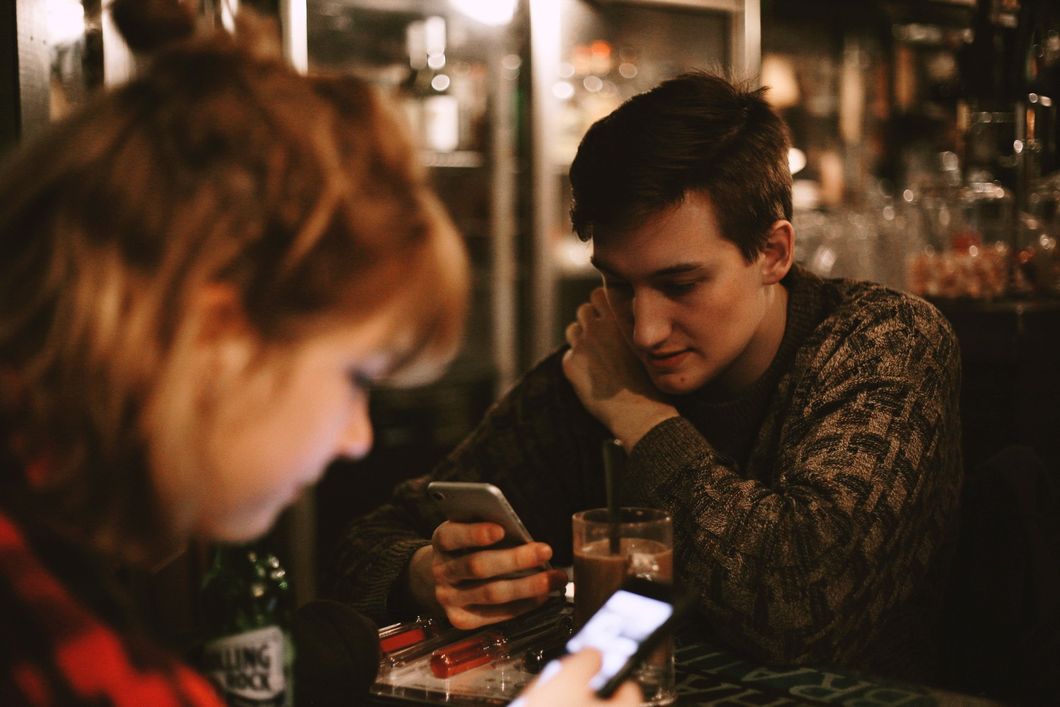At every exciting event I attend, I'm torn between wanting to photograph it for my social media feeds and wanting to avoid eye-rolls from the adults nearby, who will go home and criticize my generation for caring more about how life looks on Instagram than how it happens in front of us.
Every time I feel confident, I consider taking a selfie to preserve that feeling for later, but then I remember the stigma of selfies. I don't want to be one more casualty of the self-obsession that apparently plagues those of us who grew up with the Internet.
I've been trained to flinch away from my generation's habits because I've been trained to want to distinguish myself from my generation. I vie for the approval of older people because I don't want to be dismissed as another entitled child whose limited life experience limits her intelligence.
But while I'm expected to understand how life was before the Internet, no one demands the opposite of pre-Millennials. I have to sympathize with the trials of researching with a library instead of Google, and I'm being unappreciative of my privilege if I don't. But when my parents' or grandparents' contemporaries scoff at current technology and those of us who use it, they're not called disrespectful.
I'm reminded I owe a debt to the past. But what about the present? How can the same people who disapprove when I take pictures of events not understand that they're doing the same in life at large: sacrificing the present in favor of saving mementos of the past?
I know that social media has many harmful effects. It's valid to worry about whether today's youth are being unduly influenced by highly edited images of what human bodies look like. It's valid to critique the compulsive posturing found on online platforms, where everyone is happier and more successful than they are offline, to the detriment of everyone else who is secretly struggling offline.
Social media puts on a glossy sheen on everything, and that can make real life seem even messier than it is.
But that doesn't mean social media is evil. It doesn't mean that everyone using it proudly is contributing to society's decline.
That it's highly curated can be negative. But it's also empowering. My Instagram feed, my Facebook wall, my tweets, and retweets: All of them are like a journal in pictures and pieces, a collection of thoughts—my own and others' which resonated with me—that can be traced alongside my development as a person. I can return to the trips I took, the friends I made, the outfits I was proud of, the sights I saw, the way I thought on one particular day.
As social media critics have pointed out, it's a lazy way of experiencing the world. But that's exactly the point: Posting online all the time requires so much less discipline than writing in a journal regularly. But both are forms of documentation. Both are records of the self.
And social media has the added bonus of being visible to everyone else in real time, allowing for self-expression beyond the self. Sure, it's possible to become overly dependent on validation from likes and comments, but the simple desire to be heard is fundamentally human. It's also not new. And social media boosts the everyday voices of ordinary people in a way that essays, articles, speeches, and other platforms for opinions do not.
It's time to think of social media as a technological advancement instead of a technological invasion. Just as cell phones and microwaves and electricity and wheels made our lives easier when they became ubiquitous, social media is improving upon old methods of remembering and sharing experiences.
Yes, social media has plenty of flaws. But those of us who have grown up on it see more nuanced than that. And we understand that, sometimes, a picture is worth a thousand words.




 StableDiffusion
StableDiffusion StableDiffusion
StableDiffusion StableDiffusion
StableDiffusion Photo by
Photo by  Photo by
Photo by  Photo by
Photo by 
 Photo by
Photo by  Photo by
Photo by  Photo by
Photo by  Photo by
Photo by  Photo by
Photo by 











